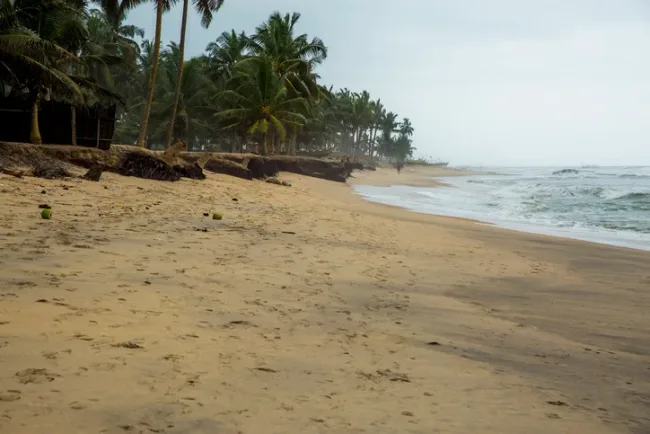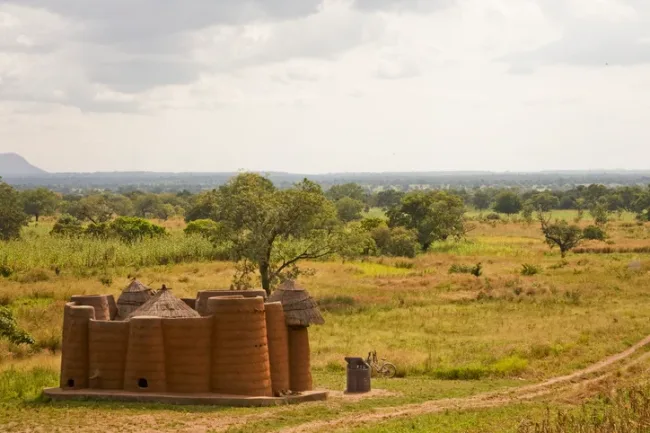
Togo
Welcome to Togo
Do you need a visa to enter Togo? If that's the question on your mind, you've landed in the right spot. This guide is designed to help you understand if a visa is required for your visit to Togo and which type of visa aligns with your travel intentions. We're all about making the visa application process less stressful for you, so that you can spend more time on the exciting parts of planning your trip.

What’s a Togo eVisa and who’s it for?
Who’s the Togo eVisa for?
More than 100 countries, including Thailand, Peru, Australia, Norway, and more, need to apply for a Togo eVisa before entering the country.
Who’s not eligible for a Togo eVisa?
-
Citizens from member countries of the Economic Community of West African States (ECOWAS) are visa-exempt and don’t need to apply for a visa before entering Togo.
-
Nationals from more than 20 countries, including Brazil, China, Turkey, and Indonesia, that have bilateral agreements with Togo.
Can you travel visa-free, or do you need to apply for a Togo eVisa? Use the Visa Checker Tool to find out.
What’s the purpose of the Togo eVisa?
The eVisa can be used for short-term visits to Togo for:
-
Tourism activities
-
Business meetings or events
-
Transit through Togo.
How long can you stay with a Togo eVisa?
The Togo eVisa grants multiple entries for stays of 15, 30, 60, or 90 days.
What’s a Togo Traveler Declaration Form and who’s it for?
Who’s the Togo Traveler Declaration Form for?
Every person entering Togo, including Togo's own citizens returning home and visitors from other countries, needs to fill out this form before they arrive.
What’s the purpose of the Togo Traveler Declaration Form?
This form collects health information from travelers to help Togo's health officials monitor and manage public health risks. It's a way to keep track of who's coming into the country and ensure they're not bringing in any health risks.
How long can you stay with a Togo Traveler Declaration Form?
The form itself doesn't determine how long you can stay in Togo. It's mainly for health monitoring. Your stay duration depends on the rules of your visa or entry permit, not this health form.
What’s a Togo Immigration Visa and who’s it for?
Who’s the Togo Immigration Visa for?
This visa is designed for people who want to permanently settle in Togo for work, study, or to be with family.
What’s the purpose of the Togo Immigration Visa?
It's for those planning to move to Togo for:
-
School or internships.
-
Joining family members.
-
Work opportunities.
After arriving in Togo, you’ll need to start the process of obtaining a residence permit.
How long can you stay with a Togo Immigration Visa?
You can stay up to 90 days with this visa, and you can renew it once.
What are the Togolese long-term visa options and who are they for?

Togo offers a variety of long-term visa options catering to different needs, including business activities, educational pursuits, employment opportunities, and more. Here's a brief overview of some common long-term visa types available.
-
Residence permit: Allows foreigners to work, study, or live in Togo and is typically valid for a period of three years. It’s renewable and can be extended depending on the conditions of the foreigner's stay.
-
Official visa: Issued to diplomats or government officials traveling to Togo for official duties, often requiring an official letter from the sending government or organization.
-
Professional visa: Designed for foreign professionals traveling to Togo with the aim of implementing projects or conducting certain professional activities within a specified timeframe.
Courtesy visa: Granted to government officials who are on official visits to Togo.
It's important to note that we don’t handle these long-term visa applications. For detailed information on each visa type, application procedures, and the most up-to-date requirements, it's recommended to visit the Directorate General of National Documentation website.
Staying healthy in Togo: Here’s what you need to know
Making sure you're in good health before your trip to Togo is key to an enjoyable visit. Here's a general health guide that will prove beneficial for visitors to the country.
Make sure to stay updated on routine vaccines
It's important to be current with your routine vaccines before traveling. This includes vaccinations for measles-mumps-rubella (MMR), diphtheria-tetanus-pertussis (DPT), varicella (chickenpox), polio, and your yearly flu shot.
The following vaccines are recommended for international visitors:
-
Hepatitis A: Advisable for anyone over a year old who hasn't received this vaccine and is traveling to Togo.
-
Hepatitis B: Recommended for individuals of all ages who are unvaccinated and planning to visit Togo.
-
Malaria: Prescription medicine is recommended to travelers to prevent malaria. Depending on the medicine you take, you may need to start taking it days before your trip, as well as during and after your journey.
-
Measles: A dose of the MMR vaccine is recommended for infants aged 6 to 11 months before traveling.
-
Meningitis: Recommended for travelers who are 2 months old or older traveling to regions that have experienced outbreaks of the disease.
-
Rabies: This vaccine is recommended for travelers involved in outdoor activities that might expose them to animal bites or those working with animals.
-
Typhoid: Especially recommended for visitors to rural areas, smaller towns, or those staying with locals.
-
Yellow fever: Mandatory for travelers coming from countries with a risk of yellow fever virus transmission. This vaccine is also recommended for all travelers who are 9 months or older, regardless of the country they’ve come from.
-
Stay informed about the latest COVID-19 travel advisories for Togo, including any quarantine, testing, or vaccine documentation requirements. For up-to-date information, consult your airline or check the Ministry of Health website.
Medical facilities
-
Togo offers both public and private medical facilities, with the quality of care generally higher in major cities such as Lomé.
-
In the countryside, healthcare facilities are more basic, and emergency services may be scarce.
-
Private healthcare is often preferred by many international visitors because of the wider selection of services and access to specialists.
-
You'll find pharmacies in cities and urban areas, stocking various over-the-counter drugs. However, if there's a particular prescription medication you need, it's better to bring it with you.
Health insurance
It’s really important to have travel health insurance for your entire trip.
Healthcare, especially in private facilities, can get expensive. Make sure your insurance covers significant health costs, including if you need to be evacuated for medical care.
Double-check with your insurance provider to confirm your policy covers:
-
Refunds for any travel mishaps, like cancellations or delays.
-
Costs for medical treatments and possible medical evacuation.
-
Compensation for lost baggage.
Things to be aware of when visiting Togo

Togo is a must-visit destination in West Africa. To make your trip as smooth as possible, here are some guidelines to keep in mind.
-
Food and water safety: To minimize the chances of health issues, drink only bottled water and be cautious with raw or undercooked meals.
-
Water safety: Coastal waters can be dangerous due to strong currents. Consult local residents for information on possible hazards and safe swimming areas.
-
Sand dust: The harmattan, a burning, dusty, and sand-filled wind, blows in from the Sahara from December to March and can affect people with respiratory issues. Talk to your doctor before you travel to learn what you can do, and monitor local media for up-to-date information.
Medication for personal use
For those taking medication to Togo, here’s what you need to know:
-
Declare all medications: Make sure to declare any medications at customs, particularly if they are prescription or controlled substances.
-
Original packaging is a must: Always keep medications in their original packaging, clearly labeled with your name and the prescription information.
-
Carry a prescription or doctor's note: Bring along a note from your doctor or a recent prescription that details why you need the medication.
-
Check for restrictions: Double-check with the embassy or consulate of Togo to ensure there are no bans or restrictions on your medications.
-
Bring only what you need: To avoid any issues, only take the amount of medication necessary for your trip.

 Australia ETA Online
Australia ETA Online
 United Kingdom ETA
United Kingdom ETA
 India Tourist eVisa
India Tourist eVisa
 Canada ETA Visa
Canada ETA Visa
 Turkey eVisa
Turkey eVisa
 Egypt eVisa
Egypt eVisa
 Singapore SG Arrival Card
Singapore SG Arrival Card
 Indonesia eVoa Visa
Indonesia eVoa Visa
 Aruba ED Card
Aruba ED Card
